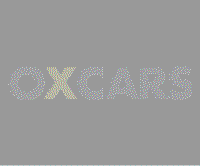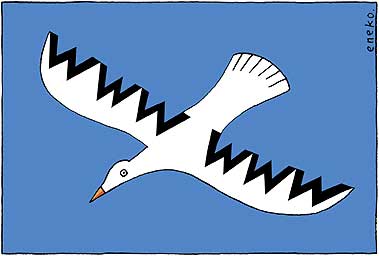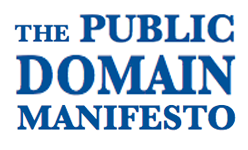Topics
– Legal Perspectives and User Access
– Economies, New P2P Models and Sustainable Distribution
– Education and Acces to Knowledge
– Free Software and Open Standards:
Knowledge Sharing Hacker Philosophy and Action Technical Ware
– Organizational Logic and Political Implications of Free Culture
LEGAL PERSPECTIVES AND USER ACCESS
Working documents
Go to 10 Necessary and Urgent Measures to Protect the Knowledge Society by eXgae
Go to Asking for an open internet in Europe (web)
Go to Consumer International. IP-watchlist09 (pdf)
Go to A2K (Access to Knowledge) Mouvement Treaty (pdf)
Go to Proposal made to the ONU´s World Organisation for Intellectual Property made by Amigos del Desarrollo (Friends of Development) (Argentina, Bolivia, Brazil, Cuba, Ecuador, Egypt, Iran, Kenya, Perou, Dominican Republic, Sierra Leone, South Africa, Tanzania and Venezuela) (pdf)
Go to TACD (Trans Atlantic Consumer Dialogue)Resolution on enforcement of copyright, trademarks, patents and other intellectual property rights (pdf)
Go to Comments on European Union Trade Agreements and ACTA
From a legal point of view, we tried to identify the gaps that exist between national regulations and international treaties. The goal is to force modifications and to map a strategy against the abusive policies for the diffusion of culture and knowledge, both in private, contractual relations and in international public policy.
The user rights to culture, knowledge and information must be taken into account. The developments of the past year have broken the balance between the rights of users/consumers and producers/artists, and it must be reestablished. Internet regulation plays a major role in this issue, which is why governments and large corporations try to control it. At an international level, ACTA, an international treaty dealing with counterfeiting and piracy, threatens to restrict our fundamental rights using the excuse of protecting the interests of authors, and is being negotiated without representatives that take into account the interests of civil society. At the European level, the Telecoms Package, which is on the verge of being approved, may mean the end of net neutrality and hand over the control of content and information to communication service providers and the entertainment industry.
These developments will end up shaping the future. In the Forum, this section was divided into three subgroups.
- Access to knowledge and citizens’ rights
In today’s globalized world, the decisions and policies of a small group of governments have the power to define the development of the rights of citizens and societies in the entire world. In this context, it is necessary to reinterpret the exceptions and limitations of legislation, and the configuration of the rights governing reproduction, distribution and accessibility in international Treaties and “Intellectual Property” regulation based on technological developments, to ensure that they do not limit the potential of the Information society to contribute to innovation and peer creation and distribution, without losing sight of the right of artists/producers to obtain fair compensation for their work. It is also necessary to ensure that international treaties work to reduce North-South differences, encompassing culture and knowledge in a sense that goes beyond their simple economic value. The WIPO development agenda is an interesting starting point for this task.
- Regulation of royalties
The main conflicts between uses and creators are taking shape on the basis of a model of royalties and an implementation of intellectual property laws that are archaic, if not extortionist: we have to devise alternatives that encourage user access and promote innovation by artists/producers.
- Internet regulation
Attempts to end Net Neutrality, control content, and use copyright as a tool for censorship and surveillance are being introduced into international charters and treaties, and thus becoming institutionalized, even if they ignore fundamental rights.
ECONOMIES, NEW P2P MODELS AND SUSTAINABLE DISTRIBUTION
This section was divided into at least two subgroups for the working sessions. The first explored emergent forms of organization, and the second explored new commercial arrangements which do away with the need for middlemen.
Culture and knowledge management are also essential in the Economy section. Over the last few years, more and more people have been speaking out to question current culture and information exploitation models based on excessively long periods of exclusivity of rights. We question its costs to society and its future development.
In the context of the Internet, the focus of economy has moved from ownership to access. The philosophy of Free Culture, a legacy of the open source software movement, is empirical proof that a new ethics and business model based on the democratization of knowledge are possible. Middlemen disappear and authors become the producers of their own works. P2P Networks have also entailed a revolution in the way knowledge and information creation and sharing are approached. These philosophies are giving rise to new collaborative models of working and disseminating knowledge that are distributed rather than hierarchical.
EDUCATION AND ACCESS TO KNOWLEDGE
Go to Education document proposal + Wheeler Declaration (Comment)
Against the corporatist approach to education, there is one based on the idea of sharing and cooperation. New ways of access to knowledge are taking advantage of new educational tools and of the dissemination of knowledge that the Internet and digital culture have provided.
In the area of education and access to knowledge, strong movements have risen to challenge the restrictions imposed by current patent and copyright laws and instead protect the freedoms of learners, educators, users and producers. While some argue for the reform or complete abolition of these regimes, others make use of them—and reverse them—with copyleft and free licenses to build a commons of free knowledge. This educational commons provides the essential human freedoms and openness we require for a free society. Each of these strategies are promoted by movements that include strengthening the public domain, open access, open educational resources, free educational materials, A2K and many more. Educators, learners and others who share these beliefs are gathering as part of a worldwide effort to improve, enhance, enrich end make more accessible education and knowledge in general.
FREE SOFTWARE AND OPEN STANDARDS: KNOWLEDGE SHARING HACKER PHILOSOPHY AND TOOLS FOR ACTION
Alternatives for action have emerged from the free software movement, with a position that clearly defends the rights of users from a collective consciousness that promotes freedom of knowledge and social justice.
The current financial crisis has shown that we live in a system in which we are all meant to protect the interests of banks and multinationals in the hope that we may some days get a few crumbs from them.
The philosophy of free culture, inherited from the free software movement, is the best empirical proof that a new kind of ethics and a new way of doing business are possible. It has already created an operational new form of production based on crafts or trades, where the author-producer doesn’t lose control of production and doesn’t need the mediation of big monopolies. And based on autonomous initiative in solidarity with others, on exchange according to each person’s abilities and opportunities, on the democratization of knowledge, education and the means of production and on a fair distribution of earnings according to the work carried out.
ORGANIZATIONAL LOGIC AND POLITICAL IMPLICATIONS OF FREE CULTURE
This group examined applications of the organizational and democratic characteristics associated with free culture experiences, their political implications, and their potential impact on the organization of political ins
For some aspects of free culture, understood politically, the commercial web 2.0 can be an important ally—particularly in terms of provision of advanced, user-friendly infrastructures, but also when it comes to lobbying to overcome the current paradigm of copyright restriction. However, in some other aspects, problematic tendencies lurk underneath the call for openness and collaboration. Most importantly, in terms of centralization, surveillance and new types of manipulation.










